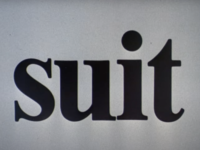Even though I’ve recently downsized my collection, I still own a frightening number of books about music. And even though I profess a certain disdain for writing that gets too far into technicalities, it’s hard for me to not pay attention (at least initially) when a new book comes out. So after reading the first chapter of David Byrne’s book How Music Works, it was immediately added to the to-be-purchased list.
In the sample chapter, Byrne discusses his theory that the context in which music is produced is far more influential than the composer’s passion and inner creative dialog. He then goes on to make a pretty valid case for why this is so, beginning with the long reverberant tones that were just more natural when sounded in the cathedrals of the Middle Ages and progressing up to modern music. The connection between the punk rock of CBGB to the country music presented at Tootsie’s Orchid Lounge in Nashville was both fun and thought-provoking.
So I emailed a link to the chapter to one of my co-workers. He’s one of the few people in my office who care about this kind of thing. OK, he’s the only one. In fact, we often joke about this. After he told me that he was planning on attending a performance featuring the music (and instruments!) of Harry Partch, we were betting that we might be the only two people in the building who would recognize that name.
[SOMETHING ELSE! REWIND: David Byrne and St. Vincent’s ‘Love This Giant’ is a party record for pop nerds — all weird observations, glinting horn stabs and off-kilter beats.]
And so the question here is this: Does that matter? Does it matter that sounds emanating from outside the mainstream are heard by so few people? I mean, hasn’t this always been the case? Haven’t the “regular” folk always been suspicious of the Avant-garde? Haven’t the “elitists” always been suspicious of pop music, that “simple” stuff?
Maybe. But for as long as I’ve loved music, I’ve lobbied against those reactions. That’s why I’m always pushing music into peoples’ hands. Here, try this…it’s amazing. It’s hip-hop? Don’t worry. It’s a little abstract and minimal but you’ll love it! And this is why I love David Byrne. He started out in the punk clubs, brought throbbing funk to the masses with the Talking Heads, and then branched out in many directions from there. Surely he broadened more than a few horizons with unsuspecting fans following him to his many surprising destinations. I know he’s been a big influence on my listening. And soon…my reading.
[amazon_enhanced asin=”B0094OLJD0″ container=”” container_class=”” price=”All” background_color=”FFFFFF” link_color=”000000″ text_color=”0000FF” /] [amazon_enhanced asin=”B008BDZOZY” container=”” container_class=”” price=”All” background_color=”FFFFFF” link_color=”000000″ text_color=”0000FF” /] [amazon_enhanced asin=”1936365537″ container=”” container_class=”” price=”All” background_color=”FFFFFF” link_color=”000000″ text_color=”0000FF” /] [amazon_enhanced asin=”B0097DM57M” container=”” container_class=”” price=”All” background_color=”FFFFFF” link_color=”000000″ text_color=”0000FF” /]
Featured photo by Andreas Laszlo Konrath
- Why the Rolling Stones’ Harrowing ‘Gimme Shelter’ is Still Revealing New Depths - November 18, 2024
- How Talking Heads’ ‘Fear of Music’ Opened Up a World of Art and Sound - August 5, 2024
- How Deep Cuts Propelled Bruce Springsteen’s ‘Born in the U.S.A.’ - June 4, 2024




